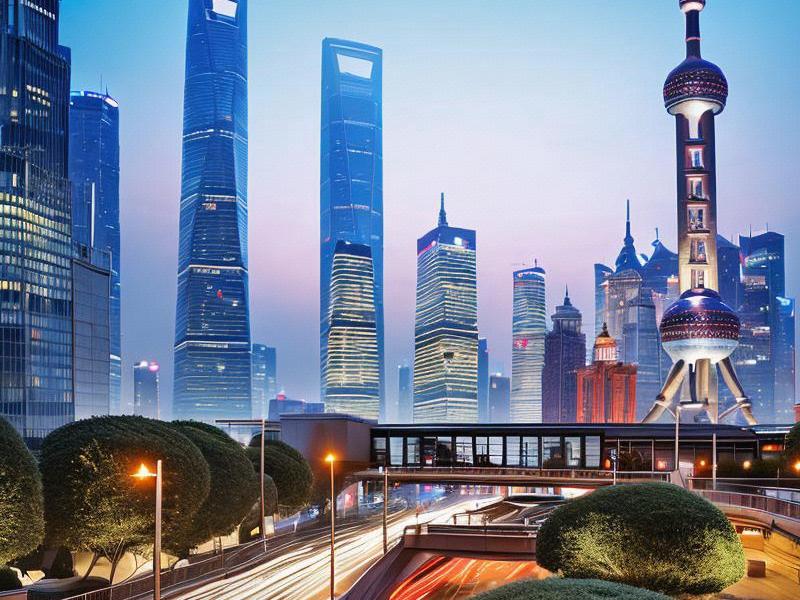This article delves into Shanghai's pivotal role in leading the globalization drive, exploring its transformation into a global economic hub, its contributions to international trade, and its fostering of cultural exchanges.

In the 21st century, globalization has become an unstoppable force, reshaping economies, societies, and cultures across the globe. Among the cities at the forefront of this phenomenon is Shanghai, China's largest city and a beacon of economic progress and international cooperation. Shanghai's journey to becoming a global leader is a testament to its strategic vision, innovative spirit, and ability to adapt to the changing dynamics of the world economy.
Shanghai's rise as a global economic hub is nothing short of remarkable. Once a modest fishing village, the city has undergone a metamorphosis into a bustling metropolis that rivals the world's most prominent financial centers. This transformation is largely attributed to the city's strategic location at the mouth of the Yangtze River, which provides direct access to the vast hinterlands of China and beyond.
The establishment of the Shanghai Free Trade Zone (FTZ) in 2013 marked a significant milestone in the city's globalization journey. The FTZ serves as a testing ground for China's economic reforms, offering a more open and liberal business environment. It has attracted a plethora of multinational corporations, startups, and financial institutions, creating a vibrant ecosystem that fosters innovation and entrepreneurship.
One of the key factors behind Shanghai's success is its robust infrastructure. The city boasts an extensive network of highways, railways, and air routes, connecting it to major cities across Asia, Europe, and North America. The Shanghai Pudong International Airport, one of the busiest in the world, handles millions of passengers and cargo annually, underscoring the city's importance as a global transportation hub.
爱上海论坛 The financial sector is another area where Shanghai has made significant strides. The Shanghai Stock Exchange (SSE) is one of the largest in Asia, providing a platform for companies to raise capital and investors to access diverse investment opportunities. The city is also home to the prestigious Shanghai Futures Exchange and the Shanghai Gold Exchange, further solidifying its position as a global financial center.
Shanghai's contributions to international trade are equally noteworthy. The Port of Shanghai, the world's busiest container port, handles billions of tons of cargo annually, making it a critical link in the global supply chain. The city's deep-water port facilities and advanced logistics infrastructure enable the efficient movement of goods, facilitating trade between China and the rest of the world.
In addition to its economic achievements, Shanghai is a cultural melting pot that embodies the spirit of globalization. The city is known for its vibrant arts scene, with numerous museums, galleries, theaters, and music venues showcasing a wide range of cultural expressions. The Shanghai Museum, for instance, is renowned for its extensive collection of Chinese art, attracting millions of visitors from around the globe.
The city's commitment to cultural exchange is evident in its numerous international festivals and events. The Shanghai International Film Festival, one of the oldest and most prestigious film festivals in Asia, attracts filmmakers and audiences from all over the world. Similarly, the Shanghai World Expo, held in 2010, was a showcase of global innovation and collaboration, drawing nearly 70 million visitors.
上海龙凤419杨浦
Shanghai's universities and research institutions play a crucial role in fostering international academic exchanges. The city is home to several world-class universities, such as Fudan University and Tongji University, which attract students and scholars from around the globe. These institutions collaborate on research projects, exchange programs, and cultural initiatives, promoting mutual understanding and knowledge sharing.
The city's cosmopolitan lifestyle further reflects its global outlook. Shanghai's skyline is dotted with iconic skyscrapers, such as the Oriental Pearl Tower and the Shanghai Tower, symbolizing the city's modernity and ambition. The Bund, a historic waterfront area, offers a glimpse into the city's rich history and architectural heritage, while the vibrant shopping districts of Nanjing Road and Huaihai Road cater to the tastes of both locals and tourists.
Despite its many achievements, Shanghai faces challenges in maintaining its position as a global leader. Rapid urbanization has led to issues such as traffic congestion, air pollution, and housing shortages. The city government has implemented various measures to address these challenges, including the promotion of green technologies, the development of public transportation, and the expansion of affordable housing.
上海品茶论坛 In addition, Shanghai must navigate the complexities of global economic uncertainties and geopolitical tensions. The ongoing trade war between China and the United States, for example, has had an impact on the city's export-oriented economy. However, Shanghai's diversified economic base and strategic location provide it with a competitive edge, enabling it to adapt to changing circumstances.
Looking ahead, Shanghai's future lies in its ability to continue embracing globalization while addressing the challenges it presents. The city's leadership is committed to fostering innovation, promoting sustainable development, and enhancing the quality of life for its residents. By doing so, Shanghai aims to solidify its position as a global leader and a model for other cities aspiring to achieve similar success.
In conclusion, Shanghai's journey to becoming a global leader is a story of resilience, innovation, and determination. The city's transformation into a global economic hub, its contributions to international trade, and its fostering of cultural exchanges are testaments to its pivotal role in the globalization drive. As Shanghai continues to evolve, it remains a beacon of hope and opportunity for the world, demonstrating the potential of cities to shape the future of globalization.